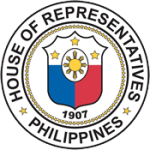PRESS RELEASES
01 March 2021 12:40:46 PM
Former economics professor and now Marikina 2nd District Rep. Stella Luz Quimbo has called on her colleagues in the House of Representatives to support the passage of Resolution of Both Houses Number 2 (RBH 2) that will change the restrictive economic provisions of the Constitution.
In her sponsorship speech, Quimbo emphasized that the amendments to the 34-year-old Charter was long overdue and that it needed to be recalibrated.
To those who were claiming that amending the Constitution was “untimely,” Quimbo said: “I agree because it is in fact overdue. Dapat po kahapon pa natin binago ang Saligang Batas upang bigyan ang Kongreso ng kakayahan na buksan ang ilang piling sektor ng ekonomiya.”
Even the framers of the 1987 Philippine Constitution, she added, believed that the law of the land should be reviewed after five years, and not five decades.
Stressing that the economic provisions of the Constitution were not meant to be “fixed forever,” Quimbo pointed out that in hearings on RBH 2, former Supreme Court Justice Adolfo Azcuna––who helped draft both the 1971 and 1986 constitutions––told the House Committee on Constitutional Amendments that “I believe we intended the economic revisions to last not more than five years.”
Quimbo added that Azcuna had clarified that the members of the Constitutional Commission “wanted the Constitution to be untouched really for five years, including the economic provisions, to see if it works; I think with 30 years of experience, it is time to recalibrate.”
The lawmaker informed members of the House that in 2019, even before the pandemic, “we fell behind Singapore, Indonesia, and Vietnam in terms of attracting FDI (foreign direct investment) inflows.”
“This is perhaps to be expected,” explained Quimbo, “since according to the OECD’s FDI regulatory restrictiveness index, the Philippines has the most restrictive economy in the ASEAN where FDI is concerned. In fact, the Philippines ranked the fourth lowest out of 87 countries around the world.”
Data released by the Philippine Statistics Authority on Wednesday revealed that in 2020, approved FDI pledges dropped to its worst level in three years, as foreign investment pledges approved by the country’s investment promotion agencies amounted to P112.12 billion, down by 71.3 percent from 2019.
According to Quimbo, “to be sure, opening up the economy to foreign investments is not the only thing we need to do to promote economic growth and development; we have a long to do list that includes investing in infrastructure, reducing the cost of power, eliminating corruption, reducing red tape, and ensuring that the rule of law prevails. But the necessary first step is to remove the restrictive economic provisions in our Constitution––or else, we risk being left further behind.
“This resolution is one necessary step towards the creation of a fairer and more dynamic business environment––one geared towards maximizing benefits for the Filipino people.”
“Hindi po dayuhan ang panalo sa panukalang ito kundi ang Pilipino. Supporting RBH 2 is a rational choice that Congress ought to make to help our economy, move forward,” Quimbo pointed out.#

